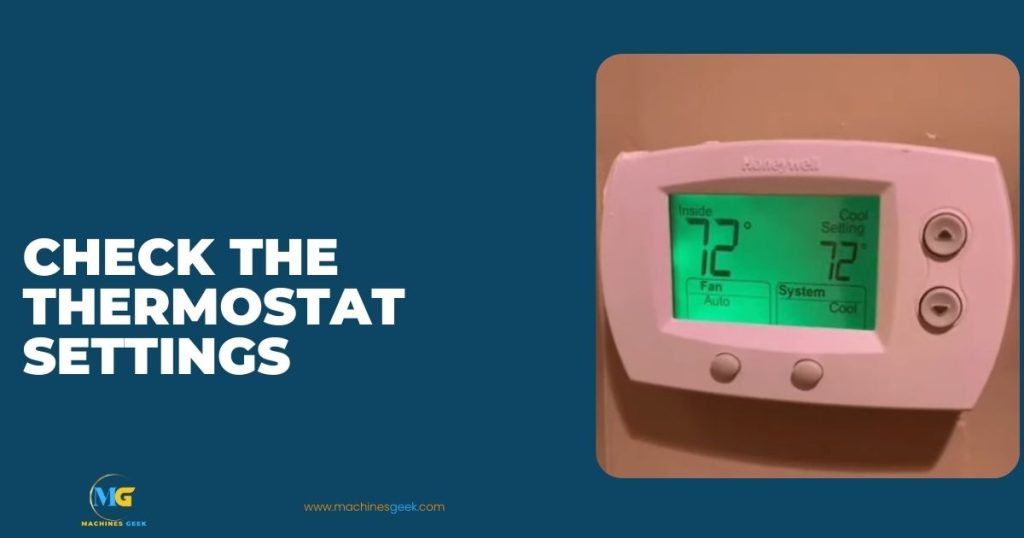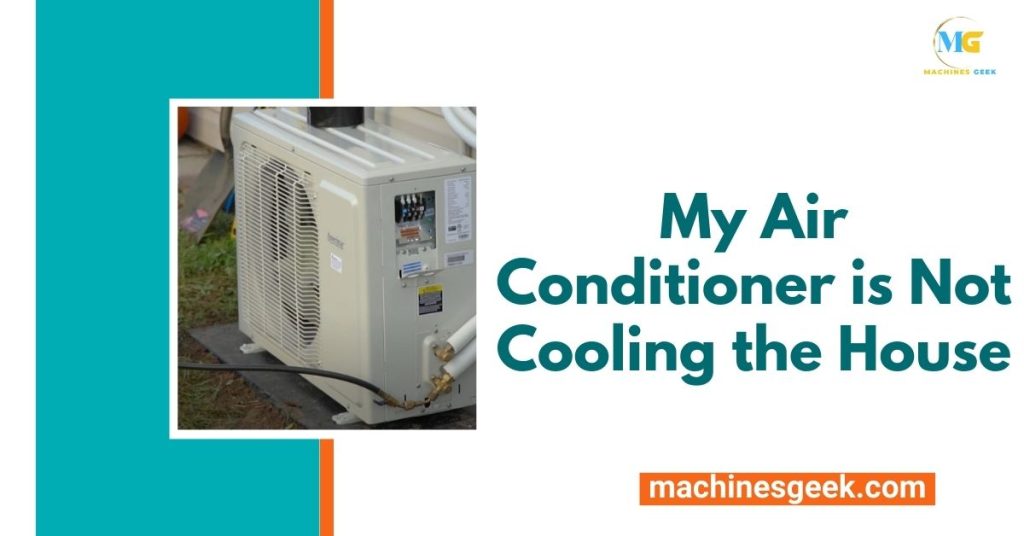Your air conditioner may not be cooling the house due to inadequate refrigerant levels or a malfunctioning compressor. Is your air conditioner failing to provide the cool relief you need during hot summer days?
It can be frustrating when your AC unit stops cooling your house effectively. When temperatures soar, a malfunctioning air conditioner can quickly turn your home into an unbearable sauna.
However, before you start panicking or calling for professional help, there are a few potential reasons why your air conditioner is not cooling your house that you can check on your own.
We will explore common issues that can cause your AC unit to lose its cooling capacity and discuss some troubleshooting steps you can take to possibly resolve the problem.
By identifying the root cause, you might be able to save time and money by fixing the issue yourself or determining when professional assistance is required. So, let’s dive in and get your air conditioner back to its cooling glory.
Possible Causes Of Air Conditioner Not Cooling
My air conditioner is not cooling the house can be caused by several factors. One possible cause could be insufficient refrigerant levels. When the refrigerant levels are low, the air conditioner is unable to cool the air effectively. Another factor could be dirty or clogged air filters.
If the filters are dirty, airflow is restricted, resulting in poor cooling performance. Additionally, a faulty thermostat may be the reason behind the lack of cooling. If the thermostat is not functioning properly, it may not be sending the right signals to the air conditioner, causing it to underperform.
Blocked air vents can also prevent the air conditioner from cooling the house properly. If the vents are obstructed by furniture or other objects, the airflow will be restricted, leading to insufficient cooling.
Finally, compressor issues can affect the performance of the air conditioner. If the compressor is faulty or damaged, it may not be able to circulate the refrigerant properly, resulting in reduced cooling capacity.
In summary, a lack of cooling in an air conditioner can be caused by insufficient refrigerant levels, dirty or clogged air filters, a faulty thermostat, blocked air vents, or compressor issues. To ensure proper cooling, it’s important to address these issues promptly.
Troubleshooting Steps To Fix An Air Conditioner That’s Not Cooling

Are you frustrated because your air conditioner is not cooling your house? Don’t worry, we have some troubleshooting steps to help you fix the issue.
Step 1: Check the Thermostat Settings
Step 2: Inspect and Clean the Air Filters
Step 3: Ensure Proper Air Circulation
Step 4: Examine and Clean the Condenser Unit
Step 5: Test for Refrigerant Leaks
Step 6: Check for Electrical Issues
If your air conditioner is not cooling, start by checking the thermostat settings. Make sure it is set to the desired temperature and the system is set to cool mode. Inspecting and cleaning the air filters is the next step. Dirty filters can obstruct airflow and reduce cooling efficiency.
Also, ensure that there is proper air circulation by keeping furniture and curtains away from vents. By examining and cleaning the condenser unit, you can remove any debris that might be blocking it.
Testing for refrigerant leaks is essential as low levels of refrigerant can affect cooling. Lastly, check for any electrical issues that may be interfering with the performance of your air conditioner.
When To Call A Professional For Air Conditioner Repairs
Is your air conditioner not cooling the house effectively? It may be time to seek professional assistance. Pay attention to the following signs, as they indicate that your air conditioner needs expert attention:
- Warm air blowing from the vents
- Inconsistent cooling or temperature fluctuations
- Weak airflow or low air pressure
- Unusual noises like grinding or squealing
- Strange odors coming from the unit
- Frequent on/off cycling
- Water leaks around the unit
Once you notice these signs, it’s crucial to select a reliable air conditioning repair service. Consider asking the following questions to a professional technician before hiring their services:
| Questions to Ask | Simple Answer |
|---|---|
| Are you licensed and insured? | Yes |
| How many years of experience do you have? | 10+ |
| Can you provide references from past clients? | Yes |
| Do you offer warranties on your repairs? | Yes, 1-year warranty |
By paying attention to the warning signs and asking the right questions, you can ensure that your air conditioner is in capable hands and will be restored to optimal cooling performance.
Is the Issue with Midea Air Conditioner 5000 Btu Not Cooling Common in Other Air Conditioners as Well?
Yes, the issue of Midea Air Conditioner 5000 Btu not cooling is common in other air conditioners as well. However, performing Midea Air Conditioner Troubleshooting can help identify and fix the problem. It’s important to follow the manufacturer’s guidelines for troubleshooting and maintenance to ensure proper functionality.
Frequently Asked Questions
Why Is My Air Conditioner Not Cooling The House?
There could be several reasons why your air conditioner is not cooling the house, such as a dirty air filter, low refrigerant levels, or a malfunctioning compressor.
How Can I Troubleshoot My Air Conditioner Not Cooling Issue?
You can try troubleshooting the issue by checking the thermostat settings, cleaning or replacing the air filter, and ensuring that the condenser unit is not blocked or obstructed.
When Should I Seek Professional Help For My Air Conditioner Not Cooling?
It is advisable to seek professional help when you have tried basic troubleshooting steps, but your air conditioner is still not cooling the house. A professional HVAC technician can diagnose and fix the underlying issue effectively.
Conclusion
To troubleshoot your air conditioner’s cooling issues, it is important to address common problems such as clogged filters, refrigerant leaks, or thermostat malfunctions. Regular maintenance and cleaning can greatly improve the efficiency of your AC unit. If all else fails, it is advisable to seek professional help to diagnose and fix the underlying issue.
By taking proactive measures, you can ensure a cool and comfortable home all summer long.








